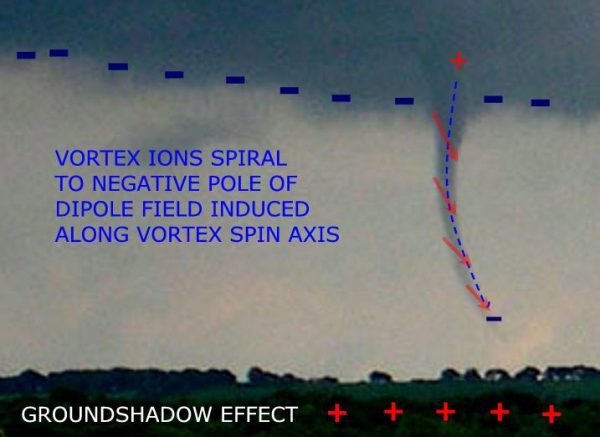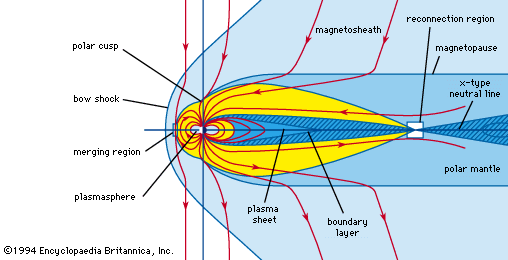|
WEATHER DYNAMICS When a CME intersects the planetary field electrified field lines, draping the CME leading edge and grounded in the solar atmosphere, electrify outer planetary field lines grounded in the planetary atmosphere inside the auroral ovals which induces a voltage potential powering high amperage currents of CME electrons inducing auroras and electrifying sectors of the auroral ovals facing the night sky during geomagnetic storms.
The planetary field captures dipole moments induced by rotation of the ionized core which increases the momentum of orbiting ions in the direction of core rotation and powers the west to east movement of planetary weather systems, trade winds and upper atmosphere jet streams, ionized by sunlight.
SolarCycle 24: 2013 x 2014 x 2015 x 2016 x 2017 Tornadoes happen after geomagnetic storms when the interface between the high density polar air mass and ambient mid latitude air mass is across the US midwest. The increase in charge density and repelling force between electrons in the electrified sectors of the auroral ovals powers a high velocity shock wave which increases barometric pressure and wind speed along the interface with the mid latitude air mass.
GEOMAGNETIC STORMS
Geomagnetic storms are stronger and more frequent during the solar maximum and around the equinoxes when the poles of the planetary fields are equal distance from the sun which increases the frequency and the amperage of geomagnetic storms.
|
Atoms are electrons and positrons 2d & 3d photon quanta with opposite and like polarity to the fields of stars and planets




